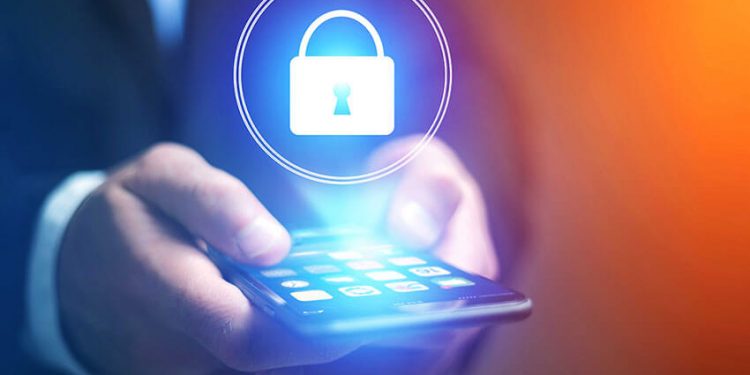Increases in internet penetration introduce new vulnerabilities.
As a result of the increasing prevalence of cyber threats, the United States government has established a research and development agency with the mission of devising a strategy to develop technology and create regulations that would reduce the likelihood of harm occurring in cyberspace.
The proliferation of social networking platforms has increased the amount of personally identifiable information posted online, making it increasingly challenging to maintain privacy settings on sensitive accounts. Fortunately, several options are available for safeguarding your privacy and security on the Internet.
Learn the top ten techniques to safeguard your online presence:
Use Strong Passwords
Password security is the most frequent method of shielding one’s online persona from prying eyes. Use a complex password that won’t be readily guessed while creating your account. Under no circumstances should you use your first, middle, or last name, the name of your spouse or kid, your address, your phone number, your place of employment, or any other identifiable information.
Protect yourself from potential cyberattacks by using a password that has a combination of letters, numbers, symbols, and case types. In addition, you should never tell someone your password. Passwords should be changed periodically, maybe many times a year.
Look for Encryption
Look for the site’s encrypted indicators before entrusting it with your financial information. This may be done by checking for two things: the presence of a locked padlock icon and the addition of “s” to the end of http in the address bar. When you are on a secure page, such as one that requests financial information, you will see “http” replaced with “https.”
Likewise, you’ll see a lock icon to the right of the address bar or the left of your browser window. Both indicators suggest that the site is encrypted, so your data will be safe when transmitted to the site’s owner. Your details will remain hidden, such as name, address, phone number, and credit card number.
Install Security Suites
Security suites are collections of security applications designed to protect your computer against malware, spyware, and other forms of cyber attack. This includes preventing malicious programs like malware, viruses, and phishing scams from being stealthily installed on your computer while browsing the Internet. Norton Antivirus, McAfee Virus Protection, Ad-Aware Pro Security, and AVG Internet Security are just a few examples of well-known antivirus software packages. If you want to keep your sensitive data safe when using the Internet, you should get and use one of these suites.
Turn on Web Browser Blacklisting
Internet browsers are partly to blame for the lack of security on the web. Blacklisting is only one of several browser security features. You may restrict your browsing to safe, reliable sources by establishing these parameters.
Avoid Phishing Scams
Multiple techniques are used in phishing scams to collect your personal information and use it to impersonate you. Phishing scams come in various forms, but learning to spot them is the best defense against falling victim. Never open an attachment from an unfamiliar sender or click on a non-secure link in an email; doing so increases your risk of falling for a phishing scam. Stay away from people who offer you money, a job you’ve never heard of, or a request for a charitable gift; they may be part of a scheme to steal your identity or money.
Get Private Data Protection
Obtaining private data protection is yet another method to safeguard your online persona and the data you provide publicly. Emails, instant messenger conversations, social network profiles, and important pdfs containing sensitive information will be safe from prying eyes with the help of this security package. You may take further precautions against hackers by using strong passwords and password protect pdf.
Password-Protect Your Wireless Router
A wireless router used to connect a house or company to the Internet should always have a password. If a password does not protect your wireless network, anybody within range can use and access it, even hackers. A skilled cybercriminal will utilize this to gain unauthorized access to your network and steal data from your PC. You may take further precautions to safeguard your private information by using the wireless router’s encryption option, which will encrypt any data sent over the network.
Hide Your Personal Information
Inadequate browser settings might lead to the inadvertent disclosure of sensitive information. When you receive a new computer or install a new browser, the first thing you can do is set it up the way you want it. The browser’s “setup” menu is where you’ll make the necessary adjustments to keep your identity secret online. Taking this extra precaution while installing a browser is essential for protecting your personal information and online safety.
Enable Cookies on Your Web Browser Only When Required
To further safeguard your personal information, you may configure your browser to accept cookies only when absolutely necessary. Information about your online activities, such as the websites you visit, may be stored in what are called “cookies” on your computer. While most individuals are trustworthy, others may use this to steal your identity. If cookies are allowed at all, you want them to be accessible only on those sites that specifically request them.
Protect Your Credit Card Info
In addition to disabling cookies altogether, you may configure your browser to accept them only when a site specifically requests them. Websites use a technology called “cookies” to keep track of your computer and the actions you do when browsing their sites. Even though most individuals don’t provide specifics, this is a means for dishonest people to learn about you. Cookies should be allowed, but access should be restricted to those sites which actually need them.
Follow Techdee for more!





